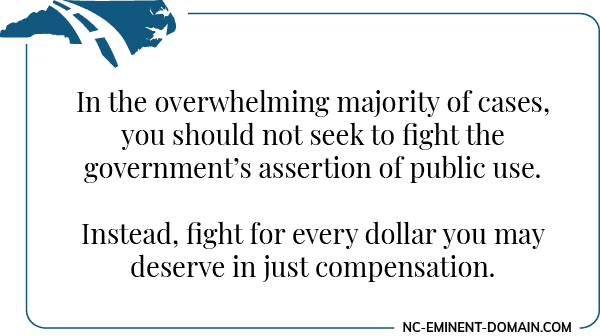What is the law for the government’s use of eminent domain?
Several court rulings have expanded the power of the government to seize private property through eminent domain for public use.
In 1954, the Supreme Court ruled that governments could take property that was “blighted” to improve them as a “public use.” Unfortunately, that ruling – Berman v. Parker – laid the foundation for eminent domain and private development.
Properties that were standing in the way of the development ambitions of a private company have simply been declared “blighted” so that the government could take them through eminent domain. In one town, authorities declared any homes in the area that did not have at least three bedrooms, two bathrooms, and an attached two-car garage to be “blighted” in order to make room for the construction of a new high-rise condo to benefit a private company.
New Supreme Court Decision Sends States and Property Owners Scrambling
In Kelo v. City of New London, the U.S. Supreme Court expanded and upheld the government’s eminent domain authority to condemn properties for a private company to redevelop. New London, which was struggling with a depressed tax base and a diminishing population, seized property near a newly constructed Pfizer plant for private companies to turn into offices, condominiums, and shops to attract new businesses and jobs.
The homeowners challenged the eminent domain takings of their property, but the Supreme Court ultimately ruled against them. Pfizer eventually closed its plant, and the business and retail complex was not built on the private land after all – a stinging irony and a reminder of the potential consequences when eminent domain laws are used to benefit a private entity.
Many thought the court granted the government overly broad powers in its use of eminent domain, and legislators in 40+ states across the country enacted more stringent eminent domain laws, limiting government power. The federal government also passed legislation that made it harder for a private company to use land from eminent domain takings.
In North Carolina, legislation was passed in 2006 that limited the use of eminent domain for a private company to only if the property were classified as “blighted.”
